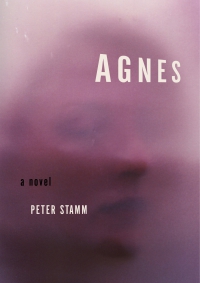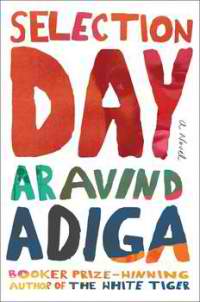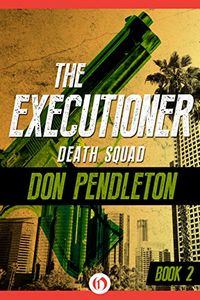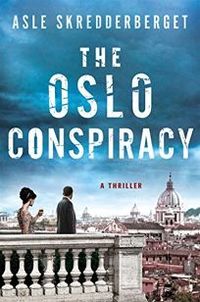Faller by Will McIntosh
 Friday, December 23, 2016 at 8:16AM
Friday, December 23, 2016 at 8:16AM 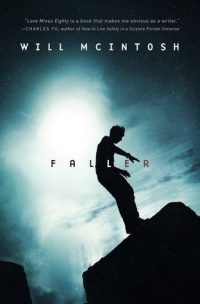
Published by Tor Books on October 25, 2016
I suppose a writer who plays with singularities can make up his own rules of physics because where singularities are concerned, nobody knows what the rules are, if any exist. Still, I’ve seen Roadrunner cartoons that are easier to believe than the events that transpire in Faller. I liked the novel, but it isn’t a story that can be taken seriously.
Initially, two storylines, past and present, keep the reader guessing about what’s going on. At about the novel’s midway point, enough clues have been planted to give the reader a sense of how the stories connect.
The story begins at some point after Day One, the day everyone found themselves without a memory. People know only that they are near the edge of the world. The world has a rather small footprint, several thousand paces in each direction. A man who eventually calls himself Faller finds a toy soldier with a parachute in his pocket, something he must have placed there as a clue before the event. Faller turns out to be a prophetic name when he finds himself falling off the edge of the world. In fact, falling is what he does for a few chapters.
The second storyline begins with Faller entering a world that is the same but different from the one he left. It’s a bigger world with more people (a population of maybe 15,000) and conflicts between groups are more complex, but its inhabitants don’t know who they are or how they got there or what the war machines that surround them are supposed to do. Faller isn’t sure what to make of the world and its inhabitants aren’t sure what to make of Faller, although they assume he’s a spy. Like the world from which he fell, this one has an edge.
Alternating with the story of Faller’s predicament are chapters that follow six friends who live in what appears to be a regulation-size Earth. The world is at war. A physicist and a biotech guy have combined to make a quantum cloning machine that duplicates organs without the diseases that afflict them, a potential solution to the bioterrorism epidemics that are ravaging the world. When one of the group gets sick, however, organ replacement won’t help, because brain transplants are beyond medical science. The afflicted woman nevertheless hits upon a “second best” solution that might assure her survival … in a sense.
Faller has significant entertainment value, although it’s the kind of story that demands not just the suspension of disbelief, but the ingestion of mind-altering chemicals to appreciate its daffy nature. Sadly, I didn’t have access to any while I was reading this, but I nevertheless liked the book. Good character development and an unpredictable plot contributed to my enjoyment of a story that I couldn’t even begin to believe.
RECOMMENDED
